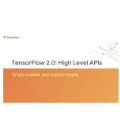This paper focuses on the PINNs algorithm by proposing the ALM-PINNs computational framework to solve various nonlinear partial differential equations and corresponding parameters identification problems. The numerical solutions obtained by the ALM-PINNs algorithm are compared with both the exact solutions and the numerical solutions implemented from the PINNs algorithm. This demonstrates that under the same machine learning framework (TensorFlow 2.0) and neural network architecture, the ALM-PINNs algorithm achieves higher accuracy compared to the standard PINNs algorithm. Additionally, this paper systematically analyzes the construction principles of the loss function by introducing the probability distribution of random errors as prior information, and provides a theoretical basis for algorithm improvement.
翻译:暂无翻译





